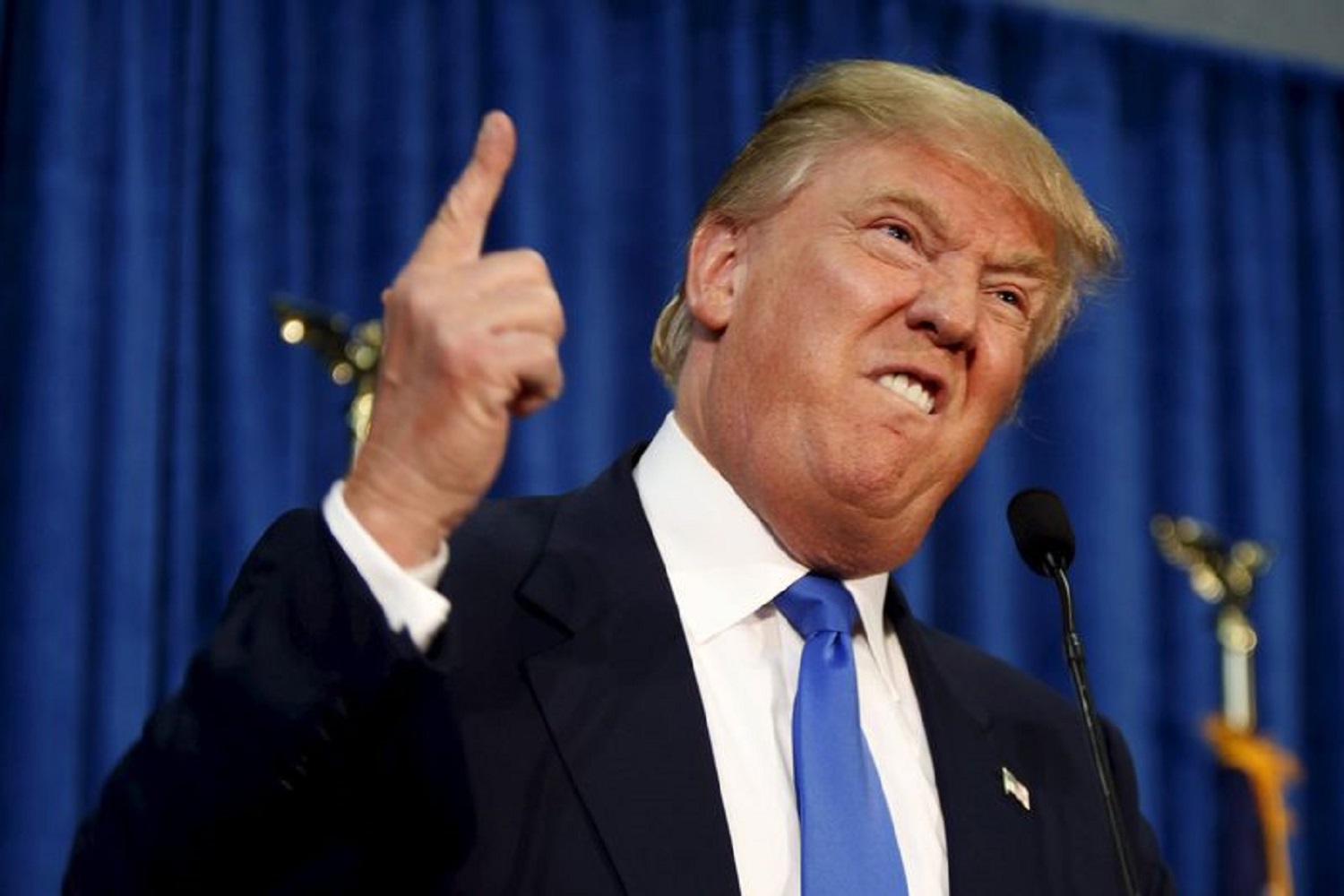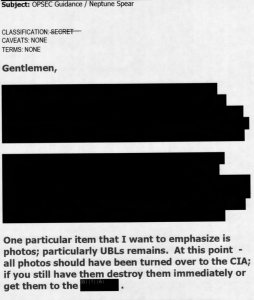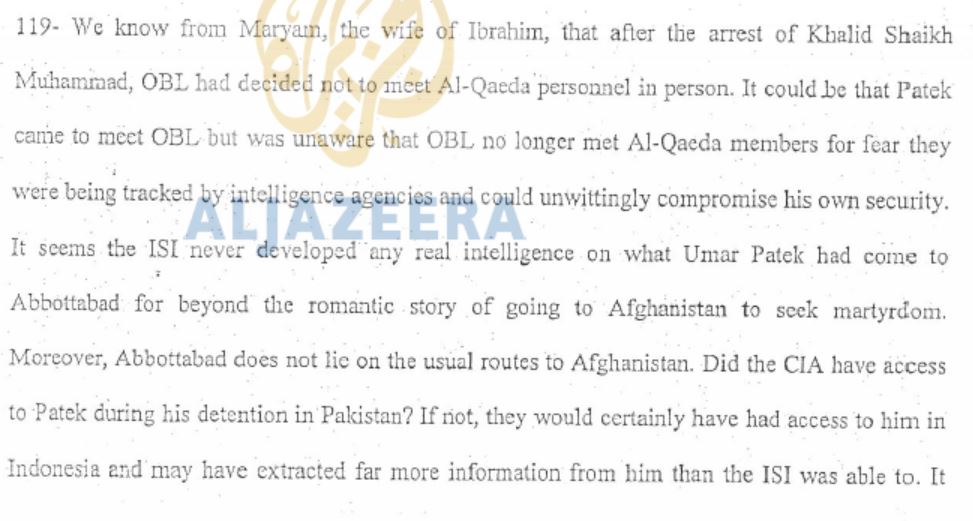There was a really weird moment during the foreign policy section of last night’s debate.
Bernie, to respond to Hillary’s explanation of what we need to do to win wars against terrorism, said he doesn’t support regime change. To counter him, Hillary said, in part, that he had voted in favor of regime change in Libya.
Which led to this exchange:
SANDERS: Judy, if I can, there is no question, Secretary Clinton and I are friends, and I have a lot of respect for her, that she has enormous experience in foreign affairs. Secretary of state for four years. You’ve got a bit of experience, I would imagine.
But judgment matters as well. Judgment matters as well. And she and I looked at the same evidence coming from the Bush administration regarding Iraq. I lead the opposition against it. She voted for it.
But more importantly, in terms of this Libya resolution that you have noted before, this was a virtually unanimous consent. Everybody voted for it wanting to see Libya move toward democracy, of course we all wanted to do that.
SANDERS: That is very different than talking about specific action for regime change, which I did not support.
CLINTON: You did support a U.N. Security Council approach, which we did follow up on. And, look, I think it’s important to look at what the most important counterterrorism judgment of the first four years of the Obama administration was, and that was the very difficult decision as to whether or not to advise the president to go after bin Laden.
I looked at the evidence. I looked at the intelligence. I got the briefings. I recommended that the president go forward. It was a hard choice. Not all of his top national security advisors agreed with that. And at the end of the day, it was the president’s decision. So he had to leave the Situation Room after hearing from the small group advising him and he had to make that decision. I’m proud that I gave him that advice. And I’m very grateful to the brave Navy SEALs who carried out that mission.
This is not the first time Hillary has changed the subject by bringing up the Osama bin Laden killing — a far more awkward example came when she did so to respond to Chuck Todd’s question whether she would release her Goldman Sachs speech transcripts.
TODD: Are you willing to release the transcripts of all your paid speeches? We do know through reporting that there were transcription services for all of those paid speeches. In full disclosure, would you release all of them?
CLINTON: I will look into it. I don’t know the status, but I will certainly look into it. But, I can only repeat what is the fact that I spoke to a lot of different groups with a lot of different constituents, a lot of different kinds of members about issues that had to do with world affairs. I probably described more times than I can remember how stressful it was advising the President about going after Bin Laden.
But this example is more telling in a number of respects.
First, consider why she had to change the subject, aside from the fact that Libya has turned out to be such a colossal mistake. Hillary claimed Bernie voted in favor of regime change and then, without a break, described the vote as favoring Security Council involvement.
He voted in favor of regime change with Libya, voted in favor of the Security Council being an active participate in setting the parameters for what we would do, which of course we followed through on.
The resolution included, among other things, these three parts:
(3) calls on Muammar Qadhafi to desist from further violence, recognize the Libyan people’s demand for democratic change, resign his position and permit a peaceful transition to democracy governed by respect for human and civil rights and the right of the people to choose their government in free and fair elections;
(7) urges the United Nations Security Council to take such further action as may be necessary to protect civilians in Libya from attack, including the possible imposition of a no-fly zone over Libyan territory;
(11) Welcomes the outreach that has begun by the United States government to Libyan opposition figures and supports an orderly, irreversible and transition to a legitimate democratic government in Libya.
It certainly called for Qaddafi to resign and transfer power to a democratic government. It even endorsed the “outreach” — which ultimately involved barely covert support for rebels — as a means to “transition to a legitimate democratic government.” And it called for the UNSC to take further action, which it did weeks later in calling for a no-fly zone. Famously, Russia and China only permitted that resolution to pass because Susan Rice had led them to believe it did not entail regime change (which is why Russia refused to play along with multilateral efforts to do something about Bashar Assad’s massacres).
VITALY CHURKIN (Russian Federation) said he had abstained, although his country’s position opposing violence against civilians in Libya was clear. Work on the resolution was not in keeping with Security Council practice, with many questions having remained unanswered, including how it would be enforced and by whom, and what the limits of engagement would be. His country had not prevented the adoption of the resolution, but he was convinced that an immediate ceasefire was the best way to stop the loss of life. His country, in fact, had pressed earlier for a resolution calling for such a ceasefire, which could have saved many additional lives. Cautioning against unpredicted consequences, he stressed that there was a need to avoid further destabilization in the region.
In last night’s debate, Sanders responded — after talking about what good friends he is with the woman who just claimed he had supported regime change — that he had supported more democracy in Libya, not regime change.
Everybody voted for it wanting to see Libya move toward democracy, of course we all wanted to do that. That is very different than talking about specific action for regime change, which I did not support.
Which led Hillary to suggest, in response, that “we follow[ed] up on,” which led directly to Qaddafi taking a bayonet up his rectum.
You did support a U.N. Security Council approach, which we did follow up on.
Hillary is suggesting (whether solely for political gain or also for legal cover, it’s not entirely clear) that that Senate call for democracy entailed permission to execute regime change. That is, she seems to be claiming that the intent all along was regime change and Sanders should have known that when he did not object to a voice vote in favor of the Libya resolution.
Then, BOOM, dead Osama bin Laden…
… Just in case you start thinking too much about what it means that Hillary suggested that Senate resolution amounted to support for regime change which therefore amounted to an authorization to use military force.
Now, thus far, the exchange is troubling, but not surprising. Hillary’s hawkishness and fondness for fairly broad exercises of executive authority are known qualities.
But the juxtaposition of the disastrous regime change effort in Libya with Obama’s decision to secretly send Navy SEALs into Pakistan to execute Osama bin Laden got me thinking about how different that OBL decision looks when the former Secretary of State is boasting about it, rather than the President.
Once you decide that the way to respond to locating OBL is to sneak into a sovereign country and execute someone, you clearly have to consult with the Secretary of State, as she’s going to have to deal with the diplomatic fallout. That was all the more true as things rolled out, given that we were already conducting delicate negotiations to get Raymond Davis out. Not to mention the way that Davis fiasco soured relations between CIA and State.
Left unsaid, though, is the other option: developing good enough relations with Pakistan — or, more likely, being able to wield enough leverage against Pakistan — such that they would turn him over without the sovereignty violation.
Maybe — likely — that was never going to happen. Maybe — likely — within the bowels of CIA and State and the White House we had good reason to know that Pakistan would not turn over OBL, no matter how much leverage we used. Maybe — likely — it’s also true that the Obama Administration thinks special forces have a better success rate than diplomacy — or thought that, in his first term; his second term, post-Clinton, has had a series of impressive diplomatic successes.
I’m not suggesting I think we could have just asked nicely. But I find it notable that the Secretary of State describes her role as advising the President on whether or not to violate another country’s sovereignty to execute someone, not as considering whether there are other ways to achieve the same objective. I find it remarkable that a Secretary of State boasts about this decision, which ultimately is about the limits of diplomacy even with our so-called allies.





